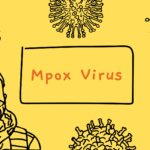As we navigate through the challenges of various health concerns, it’s important to stay informed about the MPox virus, also known as monkeypox. Here’s a simple update on its current status in India and some easy-to-follow precautions.
Current Status in India: The MPox virus has been reported in several countries around the world, including India. While the number of cases is relatively low, it’s crucial for everyone to be aware and take necessary precautions.
What is MPox? MPox is a viral infection that can cause symptoms like fever, headache, muscle aches, and a rash. It spreads through close contact with an infected person or by touching contaminated items.
Precautions: To protect yourself and your loved ones from MPox:
- Wash Your Hands: Frequently wash your hands with soap and water.
- Avoid Close Contact: Keep a safe distance from people who are sick.
- Use Masks: Wear masks when you’re in crowded places.
- Clean Surfaces: Regularly clean surfaces that are touched often.
- Stay Informed: Keep up-to-date with local health advisories.
By following these simple steps, you can significantly reduce the risk of getting infected. Remember, staying informed and taking small precautions can make a big difference in keeping you and your community safe.
Frequently Asked Questions (FAQs)
Q: What are the symptoms of MPox?
A: Symptoms include fever, headache, muscle aches, and a rash that can appear on various parts of the body.
Q: How does MPox spread?
A: It spreads through close contact with an infected person or by touching items contaminated with the virus.
Q: Is MPox contagious?
A: Yes, it is contagious and can spread from person to person through direct contact or contaminated materials.
Q: Can I get vaccinated against MPox?
A: Vaccination options are available but typically recommended for high-risk individuals or those who have been exposed to someone with MPox. Consult your healthcare provider for more information.
Q: What should I do if I think I have MPox?
A: If you suspect you have symptoms of MPox, isolate yourself immediately and contact your healthcare provider for guidance.
Q: Are there any specific groups at higher risk for MPox?
A: Yes, people who have been in close contact with someone who has MPox are at higher risk. Additionally, certain groups like healthcare workers may also be at increased risk due to their exposure.
By staying informed and taking these precautions seriously, we can all contribute to keeping our communities safe from the spread of MPox.



